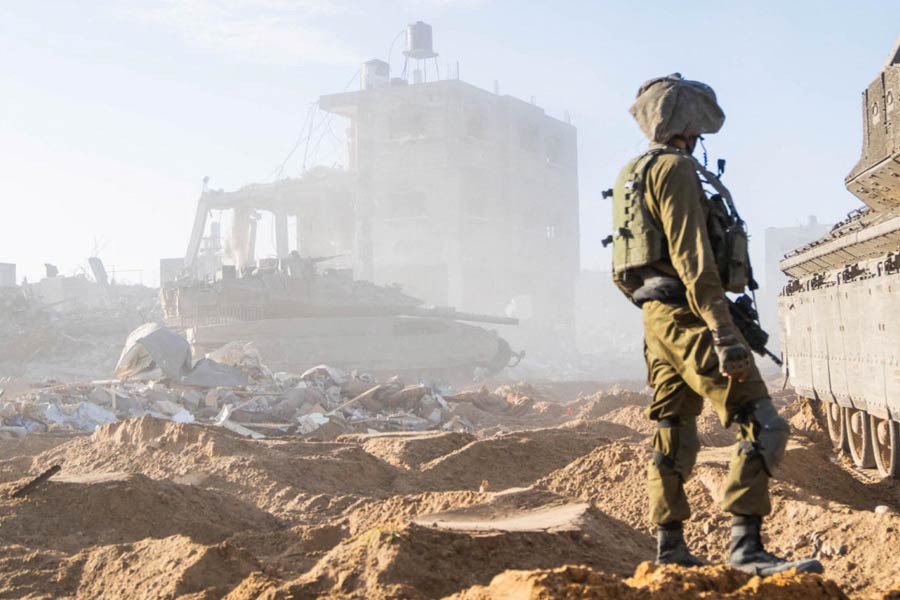A day after the Israeli military rescued four hostages held by Hamas militants in Nuseirat, Gaza residents described an intense bombardment during the raid followed by chaos in the streets from an operation that killed and wounded scores of Palestinians.
Bayan Abu Amr, 32, was carrying her 18-month-old son Mohammad on the edge of Nuseirat’s main marketplace when she was surrounded by the heavy booms of strikes from aircraft, which Israel’s military said targeted militants in an effort to ensure the safe extraction of the hostages and special forces.
“People were rushing like the day of judgment; I did not know where to run,” said Abu Amr, who was on her way to pay a condolence call to her uncle’s family after two of his sons had died. “Kids were screaming, women were falling down while running.”
Along with others in Gaza, she managed to clamber onto a passing pickup truck that was trying to ferry people safely out amid the strikes, she recalled. One girl was separated from her mother in the confusion, while an old man lost his grip and fell off the truck onto the ground, she said.
Abu Amr finally arrived home with her son hours later, shocked that she was still alive. “I won’t take my son out of the house again,” she said.
To rescue the hostages, Israeli troops entered two residential buildings where they were being held, according to Rear Adm. Daniel Hagari, the Israeli military spokesperson. Hagari said there were families living in the apartments, as well as armed Hamas militants guarding the hostages, making it “impossible to reach them without harming the civilians of Gaza”.
The precise death toll remained unclear as health officials sought to gather statistics amid chaotic scenes at hospitals.
Gaza health officials reported that more than 200 people were killed in the raid; the Israeli military said it was aware of fewer than 100 casualties, without specifying whether these were dead or wounded or both.
On Sunday, the corridors and hallways of the last major medical centre in central Gaza, Al-Aqsa Martyrs Hospital in Deir al-Balah, remained “densely crowded” with new patients, after more than 100 dead bodies had been brought there Saturday, said Khalil Daqran, a hospital official.
New York Times News Service










